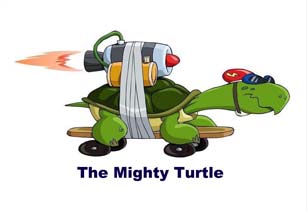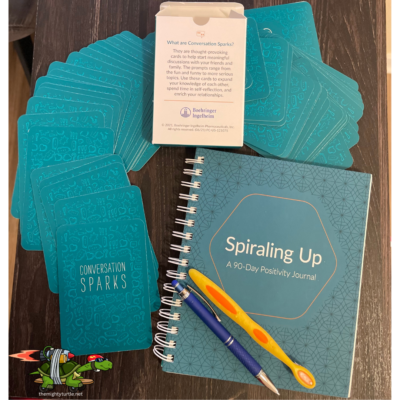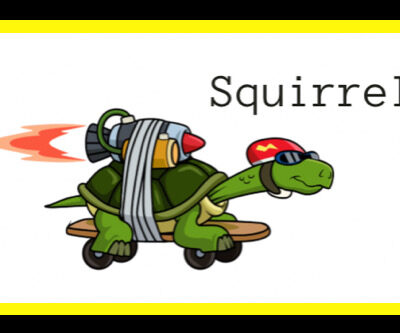
Welcome Back to The Mighty Turtle.

And of course, the Turtle’s name is Ricky-Bobby.
Hello, my name is Karen Vasquez. In 1994 I was diagnosed with a rare progressive degenerative disease called, scleroderma. I felt isolated, even in support groups and after the internet became a thing. I thought no one could possibly understand what I was going through. In 2007, I was diagnosed with sarcoidosis in addition to scleroderma and that opened my eyes to the similar symptoms experienced by people with different chronic illnesses. I started talking to people with other chronic illnesses and people who don’t have an ongoing medical stuggle. I found one thing that connected us all, grief. I may not know exactly how a person with Lupus feels, but I do understand their loss of function and/or abilities.
Not only did I find grieving loss in common with others who had different symptoms and hard to pronounce names, but I also found grieving loss in common with people who did not have chronic illnesses. Sure, I don’t know what suddenly losing a job after twenty-three years feels like, but I do understand what it’s like to lose my thumb at twenty-five years old. Yes, they are distinctly different devastating losses, but both trigger overwhelming grief.
The Grief Connection
In college, I was introduced to two books; one in psychology class and the other in philosophy class. They are The Five Stages of Grief and The Power of Myth. The Five Stages of Grief, by Elisabeth Kübler-Ross, is based on her studies of death and dying. The Power of Myth is based on a six-hour conversation between journalist Bill Moyers, and author of The Hero’s Journey, Joseph Cambell at George Lucas’ Skywalker Ranch in 1998.
For those of you unfamiliar with it, in The Hero with a Thousand Faces, Joseph Campbell chronicles storytelling throughout human history and all stories have these five steps in common. Actually, now it’s 17, or 12. There are three major parts.
- Departure: Starts with the day in the life of our hero who has a problem and is forced to solve it by leaving the world he knows behind.
- Initiation, or Road of Trials: The adventure where the hero solves the problem and fundamentaly changes the hero, somtimes referred as a spiritual or psychological change – “death”.
- The Return: The adventure of the hero’s return to the “old world” and how their changes provide resoloution of the actual problem and outcome of the changed hero in their old world- “resurrection”.
I know this feels like a lot, but please stay with me for the whole hay-ride.
That “death” I am referring to is how we, the heroes in our stories, suffer a loss that devastates our world and our “resurrection” is how we have been fundamentally changed to cope.
The Five Stages of Grief
Elizabeth Elisabeth Kübler-Ross named five stages of grief. There are different versions, but I’m sticking with the Kübler-Ross model for this post. Though they are numbered, they appear in no specific order.
- Denial
- Anger
- Barganing
- Depression
- Acceptance
Kübler-Ross called this The Stages of Dying. For our purposes here, I replace death with loss. Loss changes us. We don’t think that a loss that happened years ago will affect us throughout our lives, but it does. I certainly never did.
When I lost the normal use of my hands, I felt like I had died, and psychologically, I did. I became scleroderma and depression nearly killed me until I found a way to live in the world with scleroderma as a part of my life, not the definition of my life. I constantly cycle through The Five Stages of Grief, as we all do after a devastating loss.
Sometimes, I feel depressed I can no longer play the guitar. I experienced that loss over twenty years ago. I still miss it, but after therapy and learning to cope with my feelings of grief, I can think of it fondly instead of being angry because I live in acceptance of it, and my depression from that specific loss is no longer a problem for me, accepted it. With a progressive chronic illness, I have new challenges that result in loss. I think of it as a call to action is now what I do to cope with the grief of that loss.
What got me on connecting all of us by grief, is that my friends would call to talk to me about their problems. Then they would immediately dismiss their own problems and compare them to my health issues, with my “favorite” sentence,”Well it could always be worse.”
Yes, up until the point that we are completely conscious while on fire, it could always be worse. We use that to dismiss our problems, which we hold inside until it erupts and we can’t stop talking about it and we are no longer fun at parties.
My chronic illness does not make me stronger than anyone else. I’m as strong as the next person who experiences a loss. Their loss is just as valid as mine. I had to learn to tell my friends that it’s okay that you vent to me if you had a shit day. I mean unless there’s an extenuating circumstance where I am completely conscious and on fire. In which case the only helpful thing would be to bring me a bucket of water.
So the grief I experienced in the beginning- the mechanism or loss of my hands I what sent me into depression, just like the way someone who loses their job after twenty-three years may feel depressed because they miss the friends and colleagues they saw every day for twenty-three years. We’re both on the same journey, grief. It might take weeks or decades to get to acceptance and sometimes, a new loss can knock us right out of acceptance into a depression that stemmed from a loss decades ago. We connect with empathy using our stages of grief. I can’t imagine what it’s like to lose a job after twenty-three years, but I do have profound losses to relate to someone experiencing a loss to connect with by using my grief to empathize and be there for them, just like they are for me.



Leave a Reply